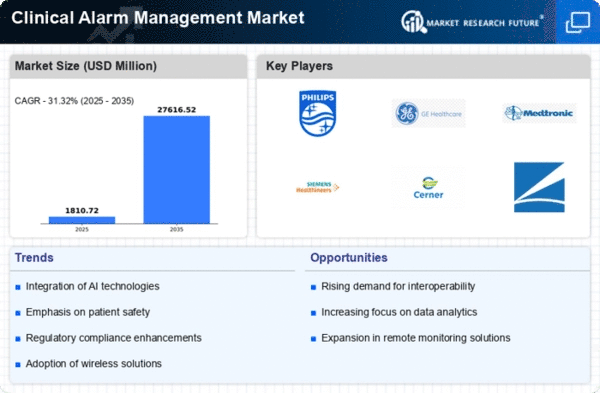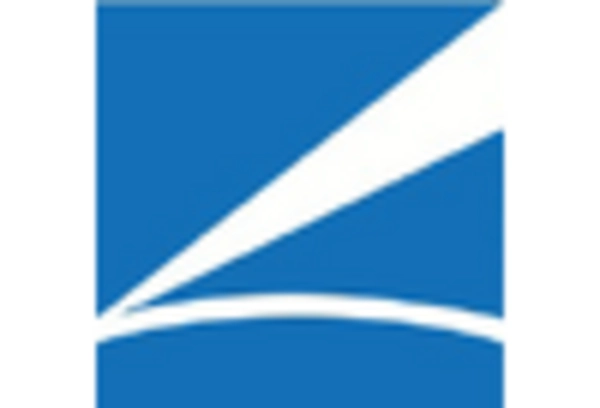Market Analysis
In-depth Analysis of Clinical Alarm Management Market Industry Landscape
The clinical alarm management market is undergoing significant changes driven by several key market dynamics. Clinical alarms are vital components of patient monitoring systems used in healthcare settings to alert healthcare providers to potential patient safety issues or changes in patient condition. One of the primary factors fueling the growth of this market is the increasing focus on patient safety and quality of care. With the rising complexity of healthcare environments and the growing volume of clinical alarms generated by medical devices, healthcare providers are seeking advanced alarm management solutions to mitigate alarm fatigue, improve response times, and enhance patient outcomes.
Technological advancements are playing a significant role in shaping the dynamics of the clinical alarm management market. Innovations such as intelligent alarm algorithms, predictive analytics, and integration with electronic health record (EHR) systems are enabling more effective alarm prioritization, customization, and contextualization. These advancements help healthcare providers differentiate between clinically significant alarms and nuisance alarms, thereby reducing alarm fatigue and alert overload. Additionally, the adoption of wireless and mobile alarm notification technologies allows for faster communication and response to critical alarms, improving patient safety and care coordination.
Changing regulatory landscapes and industry standards also impact the market dynamics of clinical alarm management. Regulatory agencies such as the Food and Drug Administration (FDA) and The Joint Commission have issued guidelines and recommendations to address alarm-related patient safety risks and promote best practices in alarm management. Compliance with these regulations is essential for healthcare organizations to maintain accreditation and ensure patient safety. Moreover, industry organizations such as the Association for the Advancement of Medical Instrumentation (AAMI) play a crucial role in developing standards and guidelines for alarm system design, implementation, and evaluation.
The competitive landscape of the clinical alarm management market is evolving rapidly, driven by the presence of numerous players competing for market share. Established medical device manufacturers, as well as specialized alarm management solution providers, are vying to offer comprehensive solutions that address the diverse needs of healthcare providers. Key strategies employed by market players include product differentiation, strategic partnerships, and integration with existing healthcare IT systems. Companies that can offer scalable, interoperable, and user-friendly alarm management solutions tailored to the specific workflows and preferences of healthcare organizations are better positioned to succeed in this competitive market.
Moreover, the COVID-19 pandemic has had a significant impact on the dynamics of the clinical alarm management market. With the influx of COVID-19 patients and the need to rapidly deploy monitoring devices in makeshift care settings, healthcare providers faced challenges related to alarm management and patient surveillance. The pandemic highlighted the importance of flexible and adaptable alarm management solutions that can accommodate dynamic care environments and evolving patient needs. Additionally, the adoption of telemedicine and remote patient monitoring technologies during the pandemic has created new opportunities for virtual alarm management and remote surveillance, enabling healthcare providers to monitor patients outside of traditional clinical settings.


















Leave a Comment